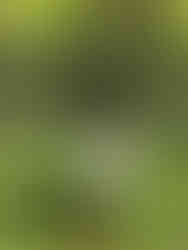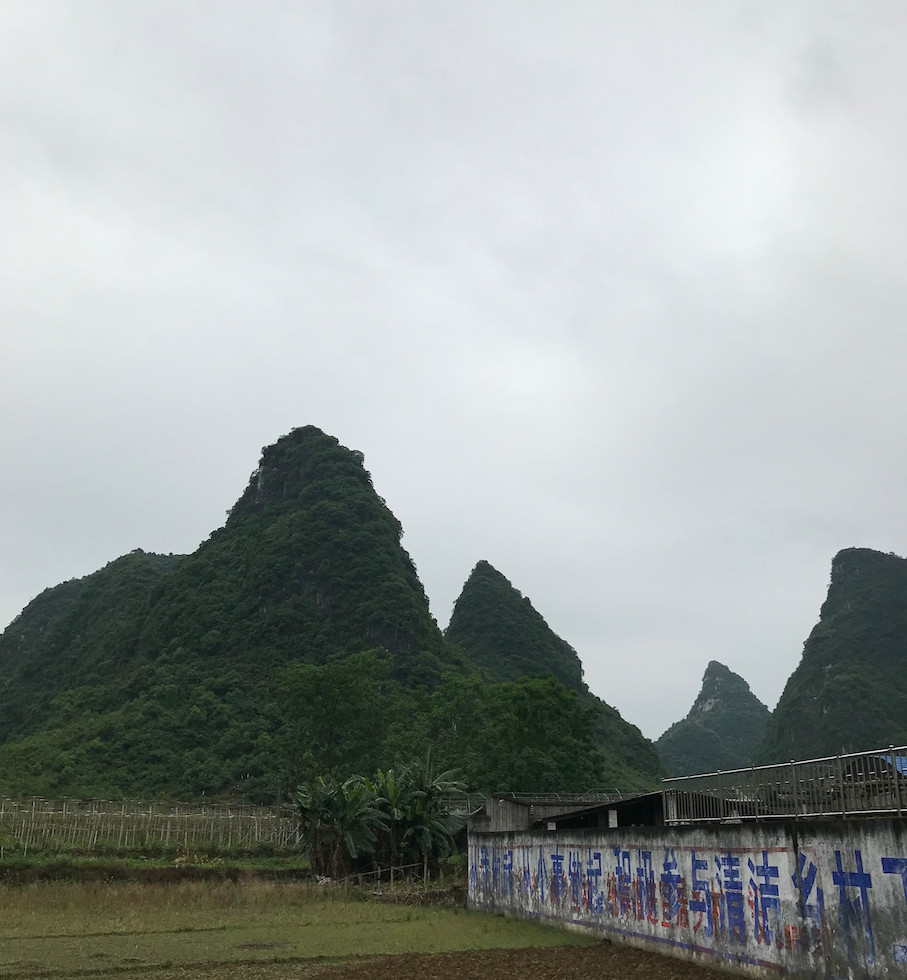瘴江南去入雲烟,
望盡黃茆是海邊。
山腹雨晴添象跡,
潭心日暖長蛟涎。
射工巧伺游人影,
颶母偏驚旅客船。
從此憂來非一事,
豈容華髮待流年。[1]
The miasmic river[2] goes south, entering cloudy mist;
At the end of [my] gaze into the yellow speargrass[3] are the shores.
[In] the belly of the mountain, the rain clears up – [there] appear the traces of elephants;
[In] the heart of the pool, the sun[shine] warms up – [there] grows the flood-dragon’s saliva.[4]
The shooters[5] cannily await signs of passers-by,
The mother of hurricanes[6] startles, of all things, the traveller’s boat.
From now on, worries will not come singly.
How can [my] grey hair wait until years have passed!
* From Liu Zongyuan shi jianshi 柳宗元詩箋釋, collated and annotated by Wang Guoan 王國安 (Shanghai: Shanghai guji chubanshe, 1993).
[1] Red characters rhyme.
[2] Wang Guoan treats this as a geographical term; see Liu Zongyuan shi jianzhi, 302. However, according to historical gazetteers and geographical treatises, the geographical term Zhangjiang 瘴江 refers to a river reach along the border of the town Hepu 合浦, which is about 350 km south of Liuzhou. Liu Zongyuan was certainly travelling from the north and had no reason to travel to that particular river and then back up to Liuzhou. It’s therefore more likely that the word zhangjiang in this poem is used as a generic word for rivers across miasma-stricken regions. Mou Zhonghang 牟重行 and Wang Caiping 王彩萍 suggest the word could refer to southern waters that become poisonous due to certain tropical plants, insects, and serpents nearby; see their article “Zhongguo lishi shang de zhangqi kaoshi” 中國歷史上的瘴氣考釋 (Textual Researches and Explanations of Miasma in Chinese History), in Shida dili yanjiu baogao 師大地理研究報告 38(2003):13-29.
[3] Note that Huangmao 黃茆 (Heteropogon contortus, also written 黃茅) is often associated with the autumn miasma, which is believed to be the most dangerous miasma.
[4] The character 長 can be read as chang (long) or zhang (grow). I struggled between these two and finally opted for zhang / grow because its ze 仄 (oblique) tone fits better here, opposite to the level tone of tian 添 (add) at the same position of the previous line. The level-tone chang 長 (long) wouldn’t be completely wrong though, and the line would read, “[In] the heart of the pool, the sun[shine] warms up – [there] the flood-dragon’s saliva becomes long/trails its spoor.”
[5] Shegong 射工 (shooter) had become a symbol of stinging insects in the South by the 3rd century at the latest.
[6] In the South, jumu 颶母 (mother of hurricanes) is a soubriquet used for the iridescent clouds before thunderstorms arrive.
The Tang poet Liu Zongyuan 柳宗元 (773-819) is one of the few historical celebrities of my hometown Liuzhou. I used to live near the park where his attire tomb (yiguan zhong 衣冠塚)[7] is located, so I sort of feel that he is my former neighbour. But it was not until recently that I noticed he wrote quite a few poems about Liuzhou. In fact, this shouldn’t be a surprise, as he spent the last four years of his life in Liuzhou.
A few days ago, the mayor of Liuzhou addressed the history of Liuzhou in his speech at an event promoting local cultural tourism. He mentioned the name of the city “Liuzhou” 柳州 (Willow County) was officialised in 634, which seems to have interested the audience. I only read about this event in the news and am sure the mayor had a lot of attractive things to say about local culture and history. Liu Zongyuan’s contributions to the development of Liuzhou are always highly praised, but I must say people in this city are rarely exposed to the poems in which Liu Zongyuan describes Liuzhou as an incredibly awful place! As a reader from about 1200 years later, born and bred in this city, I find these poems really nice and somewhat amusing. I also came to realise that the provincial gazetteer office has digitalised sixty historical gazetteers (from the Ming to the Republican period) and make the digitalisation, along with the gazetteer journal (since 1982), freely available online.[8] I guess there is no better time than now to plan a blog series of local interest, and Liu Zongyuan’s Liuzhou poems would be a good start.
The first poem I present here was written by Liu Zongyuan on his way to Liuzhou in the sixth month of the year 815. As the title suggests, he travelled by boat. In medieval and late imperial Chinese literature, unlike the term Jiangnan 江南 (South of the River), which brings images of prosperity, entertainment and culture in the lower reaches of the Yangtze River, Lingnan 嶺南 (South of the Ridges),[9] usually referring to the geographical area of modern Guangxi and Guangdong, symbolises a different kind of the South. It’s a remote, alien land inhabited by ethnic minorities of incomprehensible tongues and packed with venomous serpents and terrible miasma (zhangqi 瘴氣).
Before he was exiled to Liuzhou, Liu Zongyuan spent a decade in Yongzhou 永州 (805-815), some 367 km northeast of Liuzhou. Yongzhou was also deemed to be a place for the unwanted, but it was still north of the Ridges. Whichever river Liu Zongyuan was travelling along at this point, there is no way that he could actually see the shores, which would be more than 300 km away further down south. He must have felt that he was abandoned to a bleak land on the border of the empire, the end of the world.
He apparently had done his homework before his journey and had read and heard a lot about the horrendous far south. The second and third couplets are rife with imagery specific to the South of the Ridges, almost giving this poem a colour that characterises Li He’s 李賀 (c. 790-c.816) poetry.
There are no elephants in Liuzhou now. Historical scholars have tried to explain the legend about elephants in the mountain in the Lingnan area: they might refer to mountain mist in the shape of an elephant, or perhaps animal traces in the mountain that look like the traces of an elephant.[10] However, there is at least one report that there were still plenty of wild elephants in the mountainous areas of Guangdong during the 9th century.[11] It doesn’t really prove anything about Liuzhou, but let’s say it is still possible that Liu Zongyuan saw some real traces of elephants. What he addresses in the fourth line, on the other hand, hasn’t changed much. Stories about water snakes or water ghosts are still being told nowadays, especially in the countryside.
A few days ago, I was stung by a “shooter” when I collected clothes on the balcony in the evening. I didn’t even have a chance to see the culprit. The 3rd century text Bowu zhi 博物志 describes how deadly these shooters can be: “Wherever is shot, a sore will form. If untreated, it’ll kill people (隨著處發瘡,不治則殺人).”[12] Fortunately, the one I encountered wasn’t that deadly. The sting on my hand was very unpleasant, swollen and itchy for several days, but at least I’m still alive. Another unpleasant small insect is of course the mosquito. Last week, I went to the countryside with my niece and nephew. During our excursion to one of the mountains near my grandmother’s place, the beastly mosquitoes feasted on the three of us, leaving on my arms about two dozen coin-sized bumps. I’m slightly surprised that Liu Zongyuan didn’t anticipate this annoyance, or perhaps he was never one of those who attract mosquitoes.
Apart from the insects, Liu Zongyuan’s line about his boat trembling before the coming storm also captures some truth about Liuzhou. Now I’m writing this while listening to an afternoon storm outside, but this time “the mother of hurricanes” didn’t show up... By the way, although the summer does have some stormy days, the freshness afterwards is always very pleasant.
To sum up, I must say Liu Zongyuan’s worries about his new life are not completely unfounded. He was 42 when he came to Liuzhou. That age might be a bit too early for grey hair. When I read this (and many other depressing Liuzhou poems by him), I did hope he managed to find something to enjoy here in the end.
[7] An “attire tomb” is built for memorial or ritual purposes when the body is absent (e.g. missing, hidden, or buried in another place). Eight months after Liu Zongyuan died, his remains were repatriated to his hometown near modern Xi’an for burial. The land where the tomb was located is now a field of wheat. His attire tomb in Liuzhou was destroyed during the Cultural Revolution and rebuilt in 1974, with a stele inscribed by Guo Moruo 郭沫若 (1892-1978). See a photo here.
[8] http://www.gxdfz.org.cn/gdtz/. [9] The Ridges refer to five specific ridges along the northern border of modern Guangxi and Guangdong.
[10] See Wang Guoan’s annotation in Liu Zongyuan shi jianzhi, 302.
[11] See Edward Schafer’s discussion of how elephants became something exotic in ancient and medieval China in his fascinating book The Golden Peaches of Samarkand: A Study of T’ang Exotics (Berkeley, Los Angeles, and London: University of California Press, 1963), 79. [12] For a convenient reference: https://ctext.org/library.pl?if=gb&file=81620&page=39#%E5%B0%84%E5%B7%A5
Photos from last weekend, when I had an excursion in the village Ligao 里高 where my grandmother lives. Unfortunately, no blue sky. But it was a pleasant, cool Sunday after a whole week of 30 degrees!
Copyright Declaration*:
The texts and images used on the website of Rachelle's Lab are either from the public domain (e.g. Wikipedia), databases with open data licences (e.g. Shuhua diancang ziliao jiansuo xitong 書畫典藏資料檢索系統, National Palace Museum, Taipei), online libraries that permit reasonable use (e.g. ctext.org), or original work created for this website.
Although fair use of the website for private non-profit purposes is permitted, please note that the website of Rachelle's Lab and its content (including but not limited to translations, blog posts, images, videos, etc.) are protected under international copyright law. If you want to republish, distribute, or make derivative work based on the website content, please contact me, the copyright owner, to get written permission first and make sure to link to the corresponding page when you use it.
版權聲明:
本站所使用的圖片,皆出自公有領域(如維基)、開放數據庫(如臺北故宮博物院書畫典藏資料檢索系統)、允許合理引用的在線圖書館(如中國哲學電子化計劃)及本人創作。本站允許對網站內容進行個人的、非營利性質的合理使用。但請注意,本站及其內容(包括但不限於翻譯、博文、圖像、視頻等)受國際版權法保護。如需基於博客內容進行出版、傳播、製作衍生作品等,請務必先徵求作者(本人)書面許可,并在使用時附上本站鏈接,註明出處。
*Read more about copyright and permission here.







Unfortunately not! At least I haven't seen any yet... Perhaps Liu Zongyuan shared my problem of being a sort of deer repellent?
This is lovely! As you know it's thanks to Liu Zhongyuan I'm stuck in the middle of the countryside. Any deer?